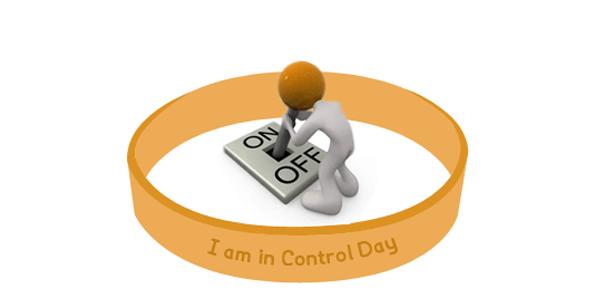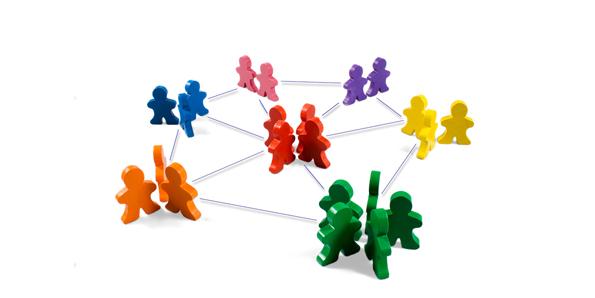The design of the brain should – in theory at least – work in our favor and for our general wellbeing. In the vast of majority of cases it does, but sometimes the road to hell that the brain follows is paved by its good intentions. To put it simply, even though the brain operates in a manner that it believes will ensure the survival and improve the quality of life, the results of its decisions are the exact opposite. It is necessary to highlight the fact that the brain functions fall under two categories, namely automatic responses to certain outside stimuli and the voluntary reactions over which we actually exercise a certain control. Let’s find out more about our own mind’s tricks and how you can avoid falling prey to them.
1. The brain tells you that you have a lot more control over your actions then you actually do
At first glance you may think this type of mistake applies mainly when you are under the influence – narcotics, alcohol and other thinking impairment substance – but the truth is that it occurs very often. Whenever we experience success or a positive event unfolds, the mind suddenly becomes over optimistic regarding our chances of effectively beating any challenge, irrespective of how difficult it is. For instance, when we take on a diet and we exercise optimal control over our eating impulses for the initial couple of days, the brain suddenly makes us believe that the effort required for abstinence is a joke. Consequentially, without staying focused, the ability to refrain from unhealthy eating habits decreases and then comes the failure.
2. The overflow of useless automatic thoughts and correlations
Thinking is an activity that the brain is always engaged in and, furthermore, every thought represents a physical event, namely the electrical impulses of the neurons. However, in the abundance of thoughts, parts of it are essentially useless. If you try to chase all trains of thought or, on the contrary, you let the unproductive ones take over the mind, you will wake up to realize that you haven’t paid enough attention to the ones that are really important.
3. Fear is the mind killer, so don’t overanalyze your phobias
Rationalizing your individual fears is only lucrative up to a certain point, namely placing the factors that scare you in perspective and coming up with effective solutions in neutralizing them. However, the mind tends to do this “really cute” thing where it constantly comes up with nightmarish scenarios until you are completely paralyzed by fear and you feel like there is no way out. If you find yourself in the situation where thinking about the fear-generating factor does not help you elaborate a counterstrike, it is best to put it aside.
4. Partying is the best way to forget about your troubles, says the mind
In fact, that is perfectly true: there is no better way to forget about the problems and worries of day to day life than a night at the club with your friends. The only problem is that forgetting about the problems doesn’t also make them go away. Sure enough, every once in a while putting everything on hold using “diversions” might help you get a better perspective on things and allow you to reevaluate your decisions, but once this becomes a habit it will have major repercussions when the problems pile up.
5. It will tell you that you’re a visionary and a mind reader
In other words, it will offer you a false notion that you already know what your interlocutor is thinking, in spite of the overwhelming lack of evidence to attest it. Therefore, you will no longer bother to actually find out whether you are right or wrong about it and you will act according to your own ideas. Remember, it is actually better to accept that you have no clue about the other person’s thoughts and try to learn rather than accept a preposterous, self-made opinion with no actual basis.
6. Your mind naturally seeks all forms of gratification
In a manner similar to the animals’ natural instinct of hunting for prey and shelter, the brain naturally seeks gratification at all times. It doesn’t matter whether or not you actually need that particular “reward” as long as the brain sees it and it is within reach. The problem is that in its pursuit for more or less necessary gratifications, it will get sidetracked and forget about the important goal.
7. The mind attempts to classify everything based on stereotypes and known patterns
Being able to rapidly fit an element into a familiar context was an invaluable skill in prehistoric times, when the survival of the individual depended highly on assessing the threat levels of an animal in order to decide the fight or flight response. However, stereotypical thinking that comes almost naturally prevents us from seeing the big picture and assessing all the factors involved in a decision. That’s how antiracial propaganda got started in the first place!
8. The brain will “fake” a strong bond with others based on little evidence
Superficial bonds between two or more people are mainly the result of over-appreciating the value of a certain gesture or the similarities between them. Just like in the case of stereotypes, it stems from being “too quick to judge” the character of the interlocutor based on a limited amount of evidence. And that’s one of the principles employed by con artists.
9. It will overemphasize the emergency of impulses
You need to differentiate between the concepts of emergency and importance in order to be able to sort out the tasks that can’t suffer another second of postponing and the ones that don’t represent a priority. To put it simply, use your reflexive capabilities whenever you are making a list of priorities rather than allow the brain to employ the automatic thinking for this purpose.
10. It will blame you for everything that’s wrong in the world
The burden of guilt – often unjustified – constitutes the mind’s attempt to find the responsible factor whenever something doesn’t go according to plan. And, since you are the closest subject, why not? Therefore, whenever when you are starting to feel guilty, try to use the reflexive capabilities once more and find out if there is incriminating evidence before you spiral downwards on the guilt trip. Even if there are, learn to forgive and forget!











Leave a Reply